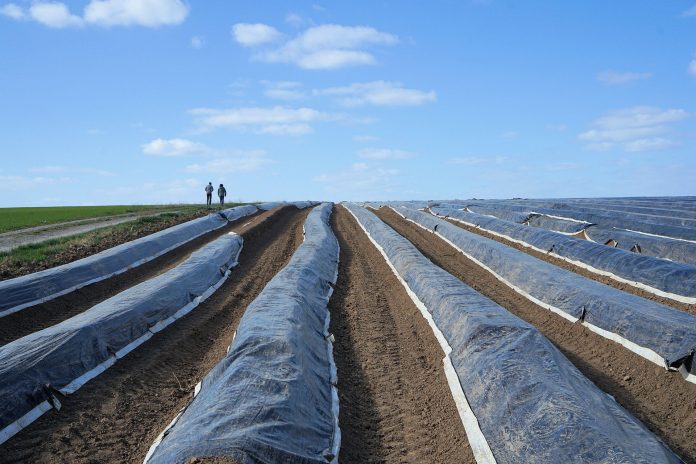The annual report “Seasonal Work in Agriculture” once again lists many labour law violations.
Frankfurt am Main- “For the entire time we worked there, we had to surrender our passports as a guarantee. We had to sign documents that we didn’t understand. We were told that it was our employment contract, but we didn’t receive a copy of our own.The wages paid according to piece work, taking into account the work we actually did, ended up being roughly four euros per hour. The employers verbally and physically abused us.
”This is what ten Romanians who were employed at a tree nursery in North Rhine-Westphalia report in the recently published booklet “Seasonal Work in Agriculture Report 2021” published by the Agricultural Work Initiative, and is just a testimony to one of many case studies.
According to the initiative’s estimates, the number of men and women who come to Germany to work as harvesters of, asparagus and strawberries, but also field vegetables, cucumbers, fruit, grapes and other crops is still at a very high level.
In 2019 there were around 274,000. For the first time this year, around 180 people from Georgia came to work in agriculture via a third country agreement. The proportion of se-asonal workers – especially from Ukraine – who worked for us with the status of interns and holiday jobs was very high this season.
The initiative’s employees went out into the field 44 times and informed over 2,500 seaso-nal workers about their rights. The majority of employees originated from Romania. We also reached workers from Poland, Croatia, Ukraine, Georgia and Bulgaria.
It was evident this season that the initiative was hindered by employers in its actions, much more than in previous years. A lack of social and health insurance due to short-term employment, incomplete wage payments and excessive wage deductions, inadequate ac-commodation and violations of infection control regulations and occupational health and safety issues. These are the four main problem groups that emerged during the cam-paigns and in the counseling work.
The current collective agreements in Horticulture in North Rhine-Westphalia, Schleswig-Holstein, Hamburg, Lower Saxony, Bremen and Mecklenburg-Western Pomerania represent a positive development. Wage group to which most of the seasonal employees belong, a gross wage of ten euros per hour applies from January 1, 2022. A new membership model for mobile workers is also attempting to promote the unionization of seasonal workers more strongly.
The initiative Faire Landarbeit is an alliance of the trade union-related fair mobility advice centers, The European Association for Migrant Workers Issues and the “Gute Arbeit” advisory network for work and life, IG BAU and other organizations. The aim is to improve the situation of seasonal workers in agriculture.
Quotes:
Harald Schaum, Deputy Federal Chairman IG BAU:
“This permanent massive violation of labor law in seasonal work must finally stop. The recommendation of the Federal Government’s Future Commission on Agriculture and the agreement of the European Union on the social conditioning of EU agricultural subsidies must now be consistently implemented by the new Federal Government and state controls must be massively expanded.”
Anja Piel, DGB-Board member:
„The next coalition must put an end to exploitation in German fields once and for all: short-term employment that is not socially secure must be limited to a few days a year in all sec-tors. In agriculture, state controls must be expanded and working hours must be reliably recorded. Employers must be obliged to pay for decent housing. Bad wages, less social protection and low labor standards are not acceptable, simply because the employment is not designed to be permanent.”





























